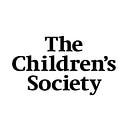Child Poverty is Only Getting Worse — Government must act now
Author: Rebecca Jacques, Policy Officer at The Children’s Society
The government’s latest figures [i] from before the pandemic show that child poverty continues to rise, with no signs of stopping. Growing up in poverty can have damaging consequences for young people. Children experiencing poverty live in families that struggle to afford the basics, where parents have to make difficult decisions between eating and heating and where young people miss out on the same opportunities as their friends.
The government’s recently released figures show that before the pandemic 4.3 million children were living in poverty in England — that’s before the job losses, financial difficulties and economic uncertainty of the last twelve months.
And unfortunately, child poverty levels keep on rising — the figures show there were 200,000 more children living in poverty in 2019–20, compared to 2018–19.
Living with Food Insecurity
For the first time this year, the government included numbers on children facing food insecurity. 26% of children living in poverty are in families where parents struggle to put food on the table. For these families, Free School Meals can be a lifeline. Since the first national lockdown, just over 300,000 children have become eligible for Free School Meals, an additional 94,000 compared to the same period the year before. What these numbers suggest is that many more families have seen reductions in income or job losses that mean their children are now eligible for Free School Meals.
‘I tell my kid to make sure they eat all their school meals as it may be the only meal they have. I often have nothing to eat and any food I do have I give to my kid as they only get 1 meal a day — I don’t have a meal many days’
But we know this isn’t the whole picture. There are children that aren’t eligible for Free School Meals but really need that support, children who live in families that are really struggling to make ends meet but don’t fall below the incredibly low £7,400 income threshold that means they could access Free School Meals.
We’re calling on the government to extend Free School Meals to all children that are living in a household that received Universal Credit so that more children who need Free School Meals can benefit.
We’re also urging the government to permanently extend Free School Meals to children in families with No Recourse to Public Funds. These are children — often British, born here or at least known no other home but our country — in low-income migrant families. The temporary extension during the pandemic has been a lifeline for some of the most vulnerable children in society and we believe this lifeline should not be taken away. No child should go hungry because of their parents’ immigration status.
The Impact of Covid-19
It’s too early to tell what the full effects of Covid-19 will be on children and families living in poverty. But what numbers like the free school meal eligibility figures suggest is that many more families are experiencing reduced incomes.
And while Free School Meals can relieve some financial pressures from parents struggling to afford food, it’s vital that the government provides adequate support to families. An extra £10 per child per week in child benefit, scrapping the two-child limit and benefit cap would all make a real difference to family incomes and help reduce the number of children growing up in poverty. The government have to act now — it is already too late.
[i] Figures refer to relative levels of child poverty, after housing costs. Households below average income: for financial years ending 1995 to 2020 — GOV.UK (www.gov.uk)
